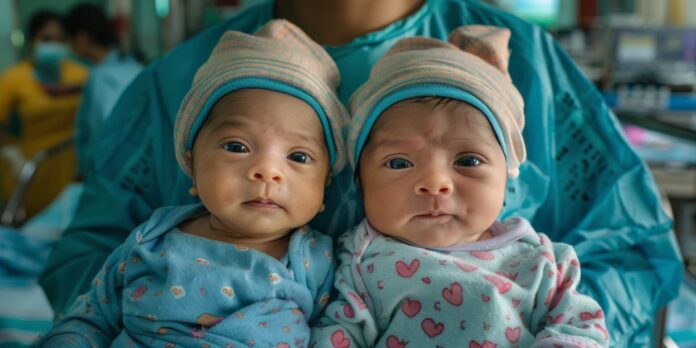Premature birth is a significant global health concern, and in India, it affects one out of every six newborns. Early births can lead to severe complications, including developmental delays and organ dysfunction. However, recent breakthroughs in AI-driven genetic research by Indian scientists are poised to transform our understanding and prevention of preterm births.
Preterm births, which occur before 37 weeks of gestation, can adversely impact the development of crucial organs like the brain, heart, lungs, and liver. Premature infants often face difficulties with breathing, regulating body temperature, and feeding, which can result in long-term health problems and developmental challenges. Although extensive research has been conducted, the precise causes of many preterm births remain unclear.
A pioneering study, conducted by a collaboration among Indian institutions including the National Institute for Research in Reproductive and Child Health (NIRRCH) in Parel, the Indian Council of Medical Research Division of Biomedical Informatics in New Delhi, and the Amity Institute of Biotechnology in Noida, has made notable progress in identifying factors that contribute to premature births.
This innovative AI-based genetic research has pinpointed three microorganisms, three genes, and three bacterial pathways that lead to infections in the birth canal, thereby increasing the risk of preterm delivery. This groundbreaking study offers new insights into the causes of premature births and suggests potential avenues for prevention and treatment.
To determine the most common bacteria responsible for infections that lead to early deliveries, the research team analyzed data from 3,757 women of diverse ethnicities. This included 966 samples from preterm births and 2,791 from full-term deliveries. Using advanced AI techniques, the team identified bacterial species that were more prevalent in women who delivered prematurely.
The study, published in the ‘American Journal of Reproductive Immunology,’ identified three key microorganisms: Shuttleworthia, Megasphaera, and Sneathia. These bacteria release chemicals in large amounts that can trigger preterm labor. Interestingly, the composition of these bacteria varied by region, with different species being more common in women from Europe, Africa, and India.
The researchers believe that AI will continue to be instrumental in analyzing data and discovering more microorganisms linked to preterm births. They are developing AI-based software and kits to help women and doctors detect microorganisms that could lead to urinary tract infections, sexually transmitted infections, or pregnancy complications. This tool aims to be both accessible and user-friendly, providing a proactive approach to managing pregnancy health.
In India, where preterm births and low birth weight are leading causes of neonatal and child mortality, this research could have a profound impact. With 3.5 million babies born prematurely each year in India and 300,000 children dying before age five due to complications from preterm births, the AI-driven insights and tools from this study could significantly decrease these numbers through early detection and intervention.
The integration of AI in medical research has once again proven its potential to address complex health issues. This AI-based genetic study marks a promising advancement in understanding and preventing preterm births in India and beyond. As researchers continue to enhance their tools and expand their studies, the outlook for reducing premature births and improving health outcomes for millions of babies looks increasingly promising.
As reported by thedoctorpreneuracademy.com, by leveraging AI, Indian scientists are not only tackling a critical health issue but also ushering in a new era of precision medicine and personalized healthcare. While the battle against preterm births is ongoing, these innovative approaches signal significant progress in the right direction.
























